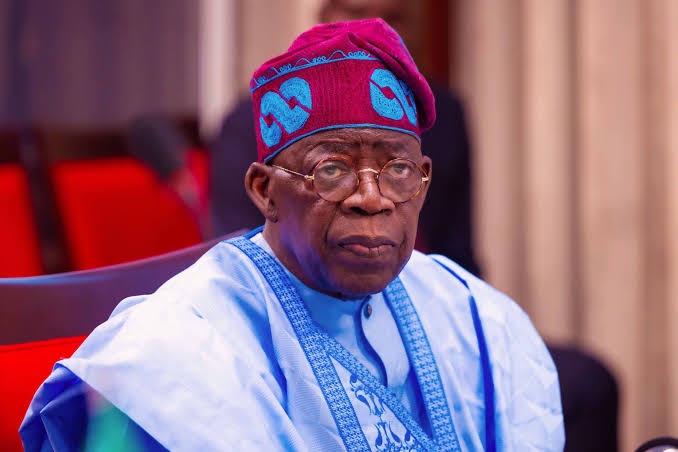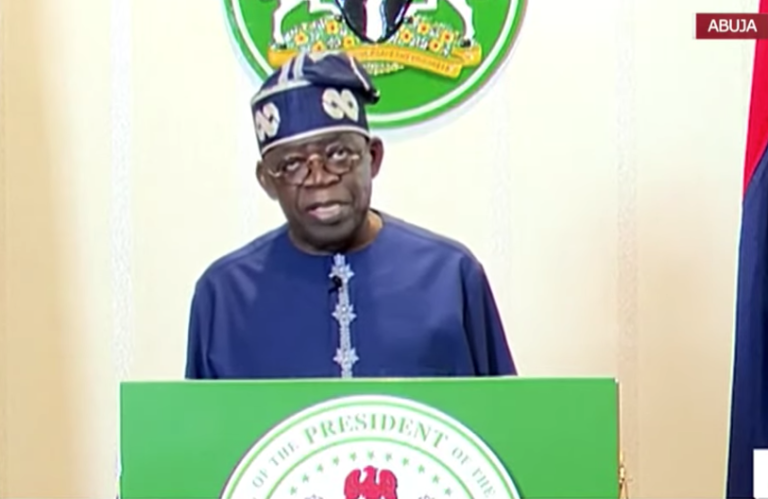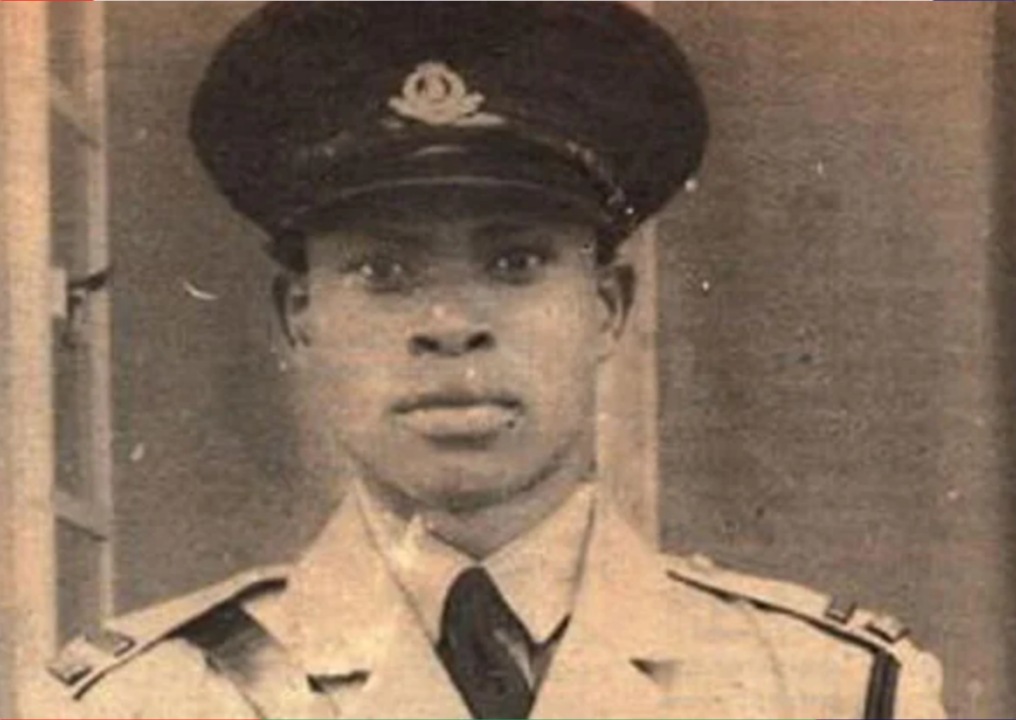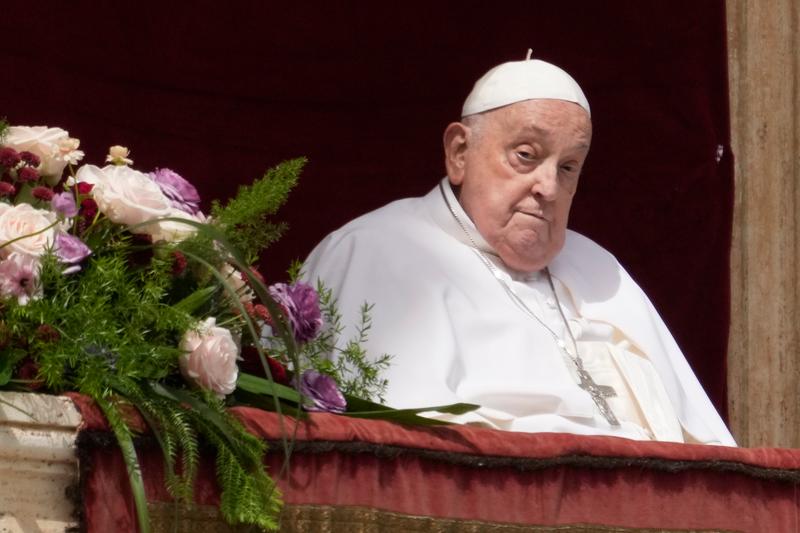FESTAC 2025: Creative Tourism for Local Economies in African States By Prof. Benjamin Okaba
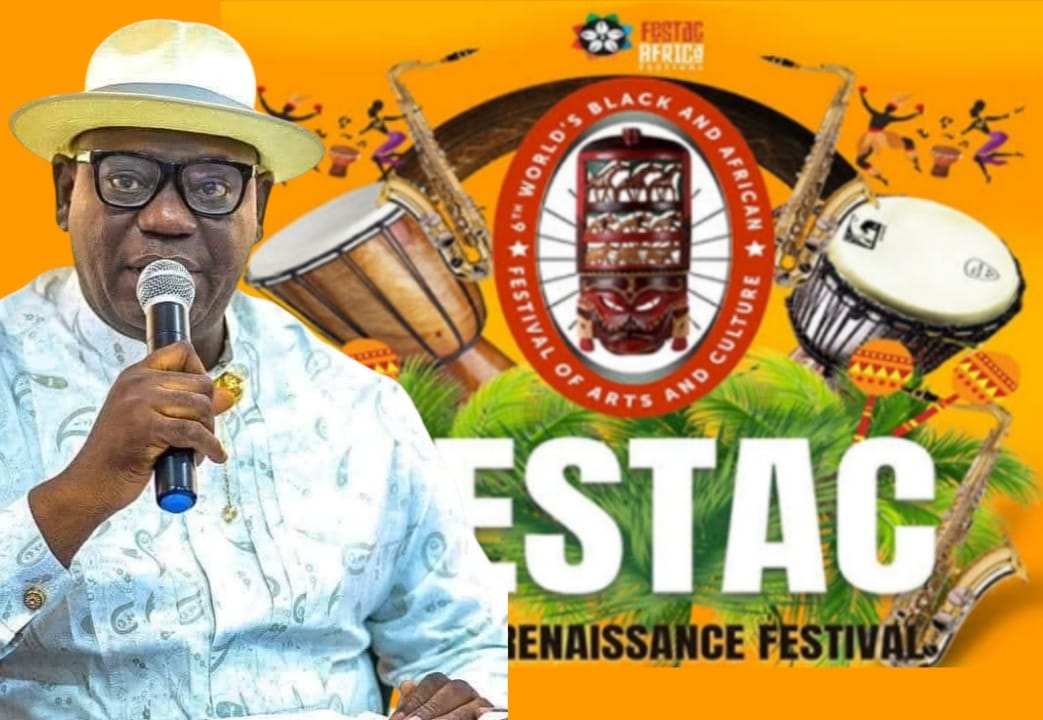
The below is a speech delivered by the President of the apex Izon social cultural organisation, the Ijaw National Congress (INC), Professor Benjamin Ogele Okaba, at FESTAC Africa Renaissance Festival, that is scheduled to hold in Accra, Ghana, from September 21st to 27th 2025. Excerpts:
Your Excellencies, Distinguished Guests, Sisters and Brothers of Africa,
It is with profound honor that I stand before you today at this esteemed FESTAC AFRICA RENAISSANCE Festival 2025 in Ghana, representing not only the Ijaw Nation, but also the unified voice of indigenous communities throughout Africa. As the President of the Ijaw National Congress (INC) and the Chairman of the Conference of Indigenous Ethnic Nationalities in Nigeria, I value this platform to explore how creative tourism has the potential to transform local economies across our continent.
RECONCEPTUALIZING CREATIVE TOURISM IN THE AFRICAN CONTEXT
Creative tourism is an indicator of an overall shift away from mass tourism paradigms. It moves beyond even passive observation to provide immersion in the cultural, creative, and traditional activity of host societies. This approach makes visitors participants as much as spectators and so helps build stronger connections and richer communication.
In an African context, creative tourism is based on our greatest asset: our cultural heritage. We have abundant ancient traditions, rich art forms, original craftsmanship, and living cultures that have survived centuries of evolution throughout our continent. These are not museum pieces for display but are actually living traditions upon which sustainable economic growth may be based as long as they are developed and integrated into sustainable tourism paradigms.
The financial reward of the strategy is enormous. Demand for travel in West Africa and the continent is expanding and "fueled by surging disposable incomes and an appetite for experiences that are authentic," say tourism experts who gathered for last month's West African Travel Expo in Ghana. The pattern offers an unparalleled opportunity to direct economic benefits into the hands of people on the ground rather than overseas hotel chains and tour operators.
• South Africa: Millennials are a new market for creative tourism, driven by self-enhancement and cross-cultural understanding. Local economies are fostered through activity such as art classes and design tours that stimulate visitor expenditure and small business possibilities, with the potential for sustainable development if handled correctly. Live performances and cultural events contributed to 4.1% workforce employment in 2019.
• Mali (Siby Village): In Siby village, rural creativity tourism has turned the place into a destination for experiential tourism with activities such as rock-climbing injected with traditional craft and oral tradition. This has generated revenue for artisans, reduced migration, and encouraged cultural conservation, all of which are all examples of low-cost, high-impact development in non-Western settings.
• Nigeria (Nollywood and Fashion): Film tourism draws people to places, earning tourism revenue and disseminating traditional patterns, contributing to exports and employment.
• Broader Sub-Saharan Africa: Community-based tourism (CBT) case studies identify infrastructure weaknesses but focus on economic empowerment by showcasing distinctive features, in alignment with SDGs.
THE IJAW PARADIGM: CULTURAL ASSETS AS ENGINES FOR ECONOMIC DEVELOPMENT
In the Niger Delta, we have begun to reveal the possibilities of creative tourism as a tool for facilitating economic empowerment as well as culture protection. The Ijaw people have a wealth of rich cultural heritage, such as:
i. Classic boat regatta and water festivals are taken as means of celebrating our marine heritage.
ii. Original weaving techniques using materials that are locally available.
iii. Prehistoric food systems founded on riverine culture
iv. The oral narrative traditions and performing arts.
v. Native environmental knowledge systems
We have commenced the process of converting these cultural assets into tourist experiences that yield income for local communities while simultaneously preserving our traditions. For example, our annual Ijaw Cultural Day has developed into a tourist attraction that attracts visitors from various parts of Nigeria and beyond, thereby offering employment opportunities for guides, performers, artisans, and food vendors.
This strategy is aligned with the thinking of ECOWAS Director Dr. Tony Luka-Elumelu, who described his dream of transforming "Africa a destination continent" through the protection and vigorous advocacy of our unique sites and experiences. In taking this path, we are building greater confidence in our cultural institutions and building economic possibilities for societies that have long counted on resource extraction.
MODERN RELEVANCE
In 2025, creative tourism is particularly pertinent in the wake of African economic crises, namely youth bulges and climatic exposures. Creative tourism promotes the African Continental Free Trade Area (AfCFTA) through increased intra-African trade and travel, wherein CCI market share increases from 1% in 2018 to 1.5% in 2022. It promotes SDGs through remaking creative economies for sustainability, righting inequalities through intermediaries such as festivals and digital platforms. It is threatened by digital divides and underfunding, but opportunities arise in the form of policy support to creative hubs and impact investing. Creative tourism is a stable route to thriving balance as it fuels job growth and GDP growth on the continent. For places investing, the payoff is sustainable economic stability and cultural vibrancy.
THE IMPACT OF COMMUNITY INVOLVEMENT AND OWNING
Grassroots involvement constitutes the foundation of successful creative tourism initiatives. Authentic creative tourism must be driven and owned by the community to guarantee that economic benefits are retained within local economies, rather than being siphoned off by external entities. Throughout our engagement with the Ijaw National Congress, we have been insistent upon:
- Involvement of traditional leaders, young people's groups, women, and craft cooperatives in decision-making regarding development of tourism. Capacity-building initiatives focus on providing community people with core skills in hospitality, storytelling, and business management.
- Fair revenue-sharing agreements that prevent economies of households from diverting direct economic gains.
- Cultural stewardship initiatives that allow the elderly to become knowledge bearers and knowledge transmitters of customary practices.
This community-oriented strategy was pivotal in repositioning the INC after what I describe as "eight years of comatose," and at the same time building optimism in the Ijaw quest for self-determination via economic empowerment. In addition, the same philosophy can work as well with other African societies that seek to utilize their cultural heritage for the sake of economic growth.
INCORPORATING CREATIVE TOURISM AS REGIONAL DEVELOPMENT POLICY
The development of creative tourism is not possible in a vacuum; it requires supportive policy settings at the local, national, and regional levels. Fortunately, encouraging trends along these lines are already beginning to be seen throughout West Africa.
ECOWAS established the ECOTOUR Policy, specifically described as "a total blueprint with the aim of transforming West Africa into an attractive and competitive destination for foreign tourism". It is about:
• Standardizing tourism services including hotel classification to build trust and attract investment
• Capacity-building initiatives to empower stakeholders with key tools for raising standards of hospitality
• Boosting cooperation between member states with the aim of creating frictionless travels
• Creating jobs and facilitating smooth travel across the region
These policies show the commitment of ECOWAS to build up the tourism industry in West Africa, encouraging economic integration, and uplifting the lives of citizens. To maximize creative tourism for the development of local economies, however, we need to ensure that these policies:
1. Emphasize community-based tourism projects in funding and technical assistance programs
2. Simplify transboundary travel for cultural exchange while making it safe
3. Safeguard the intellectual property rights of traditional knowledge and cultural expressions.
Investment in infrastructure linking cultural sites and community-based tourism is required.
POLICY LEVEL KEY COMPONENTS EXPECTED OUTCOMES
Regional Harmonized visa regulations, standardized classification Increased intra-African travel, higher quality standards; National Cultural heritage; Protection laws, community tourism grants, creative industry tax incentives Protected cultural assets, funded community initiative; Local Zoning for cultural enterprises, local content requirements, community tourism boards Direct community benefits, appropriate development
USING TECHNOLOGY FOR CREATIVE TOURISM DEVELOPMENT
In the modern age of communications, an integration of technology is indispensable for the maximization of creative tourism efficiency. Ghana Tourism Development Company Chief Executive Officer, Professor Kobby Mensah, also noted that "digital transformation is key to unlocking Africa's tourism potential," and so it is required that there are "seamless, tech-enabled interactions, from digital booking systems to technology-powered cultural experiences."
We may utilize technology in the following ways:
i. Digital storytelling platforms enable individuals to present cultural stories to universal communities even prior to their visitation.
ii. Virtual reality presentations with previews of culture attractions and events.
iii. Mobile payment systems allow an ease of payment for tourists so that they may purchase directly from the street artists and performers.
iv. Artificial intelligence platforms that facilitate the connection of travelers with experiences aligned with their passions.
Gideon Asare, the Managing Director of Adansi Travels, emphasized that destination marketers ought to utilize Artificial Intelligence (AI) as a means to "enhance the visitor experience, increase tourism revenue, and promote sustainable practices within the sector." This assertion does not imply the replacement of genuine human connections; rather, it advocates for the use of technology to foster deeper engagement with our cultures.
The Ijaw National Congress has recently embarked upon a similar venture by inaugurating diaspora chapters, including the recent creation of the Ghana Chapter, among other chapters, upon which there will be platforms for advocacy, visibility as well as support for Ijaw creative tourism initiatives. Virtual connectivity enables us to engage our diaspora citizens as cultural ambassadors and promoters of creative tourism development.
SIX (6) TRANSCENDING OBSTACLES AND BUILDING SUSTAINABLE METHODS
Despite its prospect, creative tourism development in Africa faces significant issues that need addressing.
1. Roads/infrastructure gaps, hotels and lodges / accommodation, and computers/ internet connections.
2. Limited funds for community-based tourism enterprises.
3. Brain drain as creative artists and cultural practitioners relocate for greener pastures.
4. Environmental causes are a major threat to cultural landscapes and resources. Political and security complexities are a usual scenario in certain regions.
5. In order to surmount such challenges, we need to establish resilient models combining economic, cultural, and environmental sustainability. For that, we need: Hybrid financing methods that integrate public investment, private funds, and donations from societies; Cultural protection regions are used to protect major heritage sites from incompatible development; Multi-sector collaboration between tourism boards, museums, and environmental groups; Capacity development initiatives that enhance both traditional cultural skills and contemporary hospitality management skills.
Our experience in the Niger Delta has demonstrated that creative tourism can significantly contribute to conflict resolution by offering alternative livelihoods and promoting cross-cultural understanding. As an individual who has been recognized as a Fellow of the Institute for Peace and Security Studies, I have witnessed firsthand how cultural exchange can facilitate the establishment of connections between communities.
CALL TO ACTION AND CONCLUSION:
Lastly, I urge all stakeholders, government institutions, private operators, museums and cultural institutions, and local communities to implement special initiatives with a focus on building creative tourism as a tool of local development:
For policy-makers: Implement ECOWAS ECOTOUR policy with special considerations for community-managed creative tourism initiatives. Simplify cross-border movement formalities for cultural exchange with sufficient security arrangements.
For private sector operators: Create balanced partnership formulas that provide reasonable returns from the development of tourism back to the people. Invest in training programs that build hospitality skills as well as cultural conservation knowledge.
For cultural institutions: Record and protect traditional knowledge and practice and modify it for responsible visitor experiences. Design apprenticeship programs for the transfer of skills to future generations.
For local communities: It is advisable to organize into cultural cooperatives and enterprises that can collaboratively develop and manage tourism experiences. It is essential to uphold the values of truth, resilience, peace, and hospitality, while simultaneously rejecting violence and criminality.
For the diaspora Africans: Act as cultural ambassadors and pioneer visitors to creative tourism initiatives in your ancestral home towns. Provide skills, networks, and investment funds for such initiatives.
STRATEGIC PILLAR KEY ACTIONS STAKEHOLDERS INVOLVED
Cultural Preservation Documentation of traditions, elder-youth knowledge transfer, cultural conservations zones Community groups, cultural institutions, UNESCO
Enterprise Development Creative tourism incubators, market access programmes, digital platform development Entrepreneurs, investors, tech companies
Policy Support Community tourism guidelines, intellectual property protection, visa facilitation Governments, regional bodies, tourism bodies
Marketing and Distribution Storytelling campaigns, diaspora engagement, trade fair participation Marketing agencies, diaspora associations.
As the Ijaw National Congress posits, "We are not victims; we are a resilient nation standing up to reclaim our future." This mindset is equally applicable to all African people working hard to apply their heritage for economic empowerment through creative tourism. Through creative tourism, we are able to build economies that are prosperous yet true representations of our cultural heritage. We are capable of building possibilities for our young people to build their futures back home instead of resorting to the dangerous migration. Additionally, we are capable of showcasing the diversity of African cultures on our own conditions. Let us cooperate in the development of a vibrant creative tourism system throughout Africa a system that generates sustainable livelihoods, safeguards our cultural heritage, and reveals the richness of our societies to the global masses. Thanks, and let our combined work lead to the flourishing and cultural renaissance of societies throughout our grand continent.
Thank you.
PROF. BENJAMIN OKABA
President, Ijaw National Congress (INC) Global
#penglobalspeech #INC #FESTAC #Ghana
